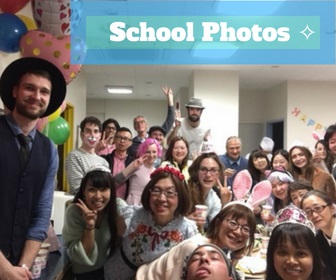毎日みんなの笑顔に会いたくなるWAHAHAが選ばれる理由
出席率99%
WAHAHAだからできる!充実のレッスン内容
WAHAHAは年齢、国籍、職業、日本語学習目的に関係なく、
全生徒が熱心に取り組める環境作りに努めています。
少人数制
レベル別を重視していますので、クラスは1名~最大6名まで、通常1クラス2~3名です。クラス内での活発なコミュニケーション、また各クラスに合ったフレキシブルな授業内容で授業がすすめられ、短期上達のための効果的なレッスンを提供します。
多彩なレッスンコース
基本的な日本語コースの他に、ビジネス、インターンシップ、トランスレーション、文化コースなど、ひとりひとりの日本語学習目的に合ったレッスンが選べます。
フォローアップ
通常のレッスンカリキュラム以外で個人的に学習したい項目(漢字、JLPTなど) の教材を積極的に渡し、レッスン時間外でアドバイスを行います。その他日本語学習全般に関する質問、相談等は随時受けつけます。
プロフェッショナルな
教師
教師はすべて有資格者で日本語教師としての経験だけではなく、様々な社会経験も豊富です。ビジネス、経済、歴史、翻訳などの専門知識をもつ教師による質の高いレッスンが受けられます。教師・スタッフのほとんどが海外留学の経験があり、必要に応じて英語、韓国語などでの説明も可能です。
学習する環境もサポート!
生活安心宣言
学習は環境から~WAHAHA日本語学校では、生徒のみなさんが安心して
日本語学習にとりくみ、短期間で自分の目標に近づけるような環境づくりに
力を注いでいます。
生活サポート

生徒と講師、スタッフ間のコミュニケーションを活発にし、情報交換を大切にします。生活面、学習面のどんな相談にも丁寧に対応し、各自の問題解決に向けてスタッフ一同努力します。
アクティビティ

日本語レッスンだけではなく、放課後や週末も充実した生活がおくれるように様々なイベント、アクティビティーを企画します。季節に合った観光やイベント、また月1回のクッキングレッスンや学校でのパーティーなど、日本人との交流イベントも活発に行います。






